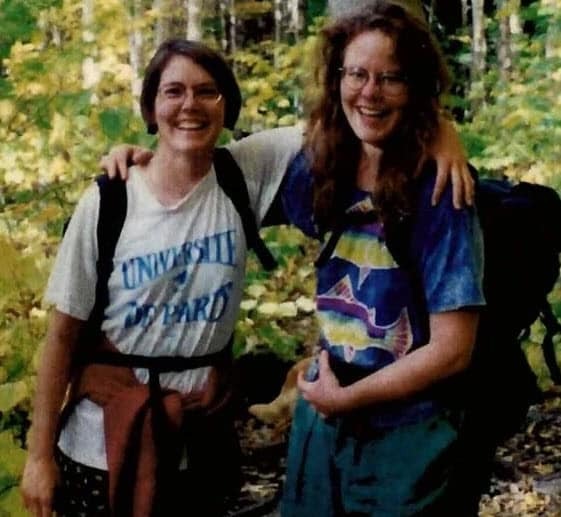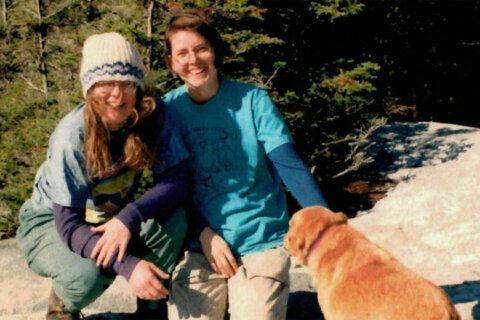Suspect Identified 28 Years After Brutal Killings Of Women In Shenandoah National Park
A convicted serial rapist was responsible for the unsolved murders of two women hikers 28 years ago in Shenandoah National Park in Virginia, authorities announced Thursday.
The bodies of Laura “Lollie” Winans, 26, and her girlfriend, Julianne “Julie” Williams, 24, were found at their remote campsite on June 1, 1996, by park service rangers after they were reported missing. The mysterious deaths of the women, who were experienced hikers, had long raised fears for others seeking to tackle the Appalachian Trail as well as questions about whether they were targeted because they were gay.

Advertisement
On Thursday, federal investigators revealed the name of a suspect — and that he had already died while in custody for other crimes. DNA taken from Walter “Leo” Jackson Sr., who died in an Ohio prison in 2018 at age 70 while serving a sentence for kidnapping and rape, was a match for “several items of evidence” collected from the crime scene, the FBI’s Richmond Field Office said Thursday in a press release.
Authorities said new forensic testing also revealed evidence that the women had been sexually assaulted.
A new team was assigned to reinvestigate the case in 2021 and submitted the evidence to a private DNA lab for retesting. The DNA obtained from the lab was then submitted to the national law enforcement DNA database known as CODIS, which matched a cheek swab taken from Jackson.
The bodies of Winans and Williams, who were last seen May 24, were found inside their sleeping bags. They had been gagged, with their hands bound and their throats slashed.
Advertisement
The FBI declined to answer questions from HuffPost about when Jackson’s DNA was collected, what specific items from the crime scene were tested, and whether they had been previously submitted to CODIS.
Kathryn Miles, who researched the case for her book, “Trailed: One Woman’s Quest to Solve the Shenandoah Murders,” told HuffPost that investigators had mishandled the case from the start. Despite evidence to the contrary, she said, rangers initially speculated that the killings were a murder-suicide or that the women had been attacked by a bear.
In 2002, prosecutors charged Darrell Rice, a 34-year-old computer programmer with four counts of capital murder. They described the killings as a hate crime, saying he targeted the women because they were gay, and said they would seek the death penalty. It was the first federal hate crime capital case in U.S. history.
Rice, who had previously been found guilty of the attempted abduction of a woman in the park, wasn’t a viable suspect for the double murders and prosecutors unfairly targeted him, Miles said, “despite the fact that DNA clearly excluded him, despite the fact that he had an alibi for the day that they were killed, despite the fact that there was absolutely nothing linking to the case.”

Advertisement
Authorities eventually dropped the charges against Rice, but said he could be tried if additional evidence came to light.
“Rice lived in basically what was a de facto double jeopardy situation for the rest of his life, and it completely ruined his life,” Miles said. “It rendered him destitute, it did incredible social and emotional damage to him and to his family. And I didn’t hear an apology for that today.”
A lawyer for Rice in September 2021 provided some details about the DNA collected in the case, which was excluded as belonging to Rice.
“There’s male DNA on the gag in Julie’s mouth, there are hairs under the duct tape…. they weren’t Darrell Rice’s,” Deirdre Enright, the founder and director of the Innocence Project at the University of Virginia School of Law, told WUSA9.
On Thursday, the FBI’s Cavanaugh acknowledged the failure of the initial prosecution of Rice.
“That case was not built on forensic evidence,” Cavanaugh said. He also said there was no evidence that the women had been targeted because of their sexuality or other characteristics.
Advertisement
“Make no mistake, this crime was brutal. This crime was definitionally hateful. Nevertheless, we do not have any evidence that the victims were selected for or that Jackson had any knowledge of or was otherwise motivated by their membership in a protected class,” he said.
FBI agent Stanley Meador added that authorities had spoken with the women’s families and recognized how hard it was for them to hear Thursday’s news.
“They’ve been seeking answers for far too long,” he said.

Comments are closed.